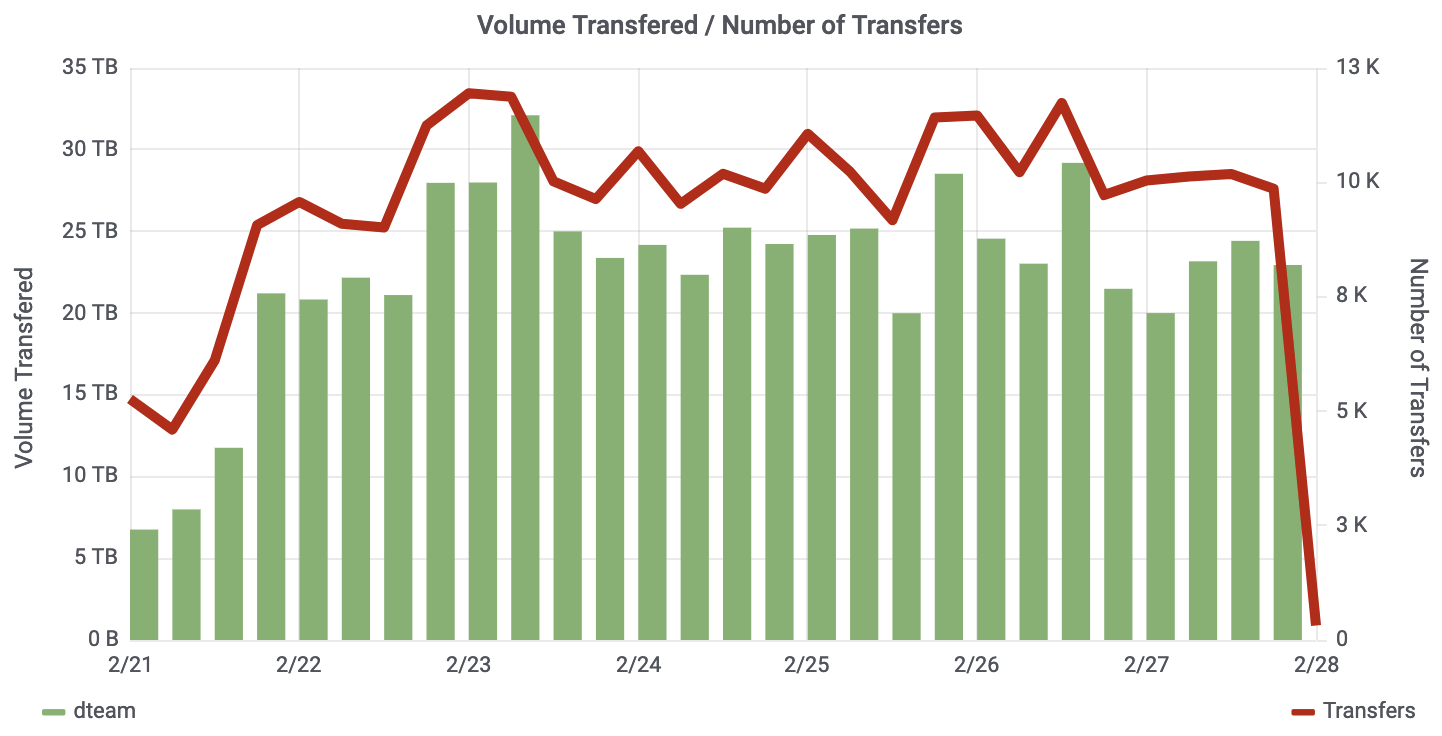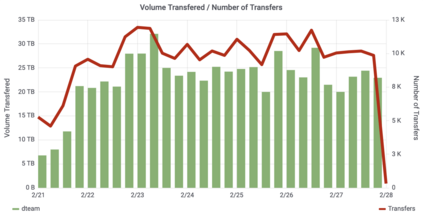Since its earliest days, the Worldwide LHC Computational Grid (WLCG) has relied on GridFTP to transfer data between sites. The announcement that Globus is dropping support of its open source Globus Toolkit (GT), which forms the basis for several FTP client and servers, has created an opportunity to reevaluate the use of FTP. HTTP-TPC, an extension to HTTP compatible with WebDAV, has arisen as a strong contender for an alternative approach. In this paper, we describe the HTTP-TPC protocol itself, along with the current status of its support in different implementations, and the interoperability testing done within the WLCG DOMA working group's TPC activity. This protocol also provides the first real use-case for token-based authorisation for this community. We will demonstrate the benefits of such authorisation by showing how it allows HTTP-TPC to support new technologies (such as OAuth, OpenID Connect, Macaroons and SciTokens) without changing the protocol. We will also discuss the next steps for HTTP-TPC and the plans to use the protocol for WLCG transfers.
翻译:自最初几天以来,环球LHC计算网(WLCG)一直依靠GridFTP在各站点之间传输数据。Globus宣布不再支持其作为若干FTP客户和服务器基础的开放源码Globus工具包(GT),这为重新评估FTP的使用创造了机会。HTTP-TPC(与WebDAV兼容的HTTP的延伸)是替代方法的强大竞争者。我们在本文件中描述了HTTP-TPC协议本身及其在不同执行过程中的支持现状,以及在WLCGDOMA工作组TPC活动范围内进行的互操作性测试。这项协议也为这个社区象征性授权提供了第一个真正的使用案例。我们将通过表明它如何允许HTTP-TP支持新技术(如OATUT、OpenID连接、Macaroons和SciTokens)而不改变协议,来证明这种授权的好处。我们还将讨论HTTP-TPC的下一步步骤和将协议用于WLCG转让的计划。

相关内容
- Today (iOS and OS X): widgets for the Today view of Notification Center
- Share (iOS and OS X): post content to web services or share content with others
- Actions (iOS and OS X): app extensions to view or manipulate inside another app
- Photo Editing (iOS): edit a photo or video in Apple's Photos app with extensions from a third-party apps
- Finder Sync (OS X): remote file storage in the Finder with support for Finder content annotation
- Storage Provider (iOS): an interface between files inside an app and other apps on a user's device
- Custom Keyboard (iOS): system-wide alternative keyboards
Source: iOS 8 Extensions: Apple’s Plan for a Powerful App Ecosystem




